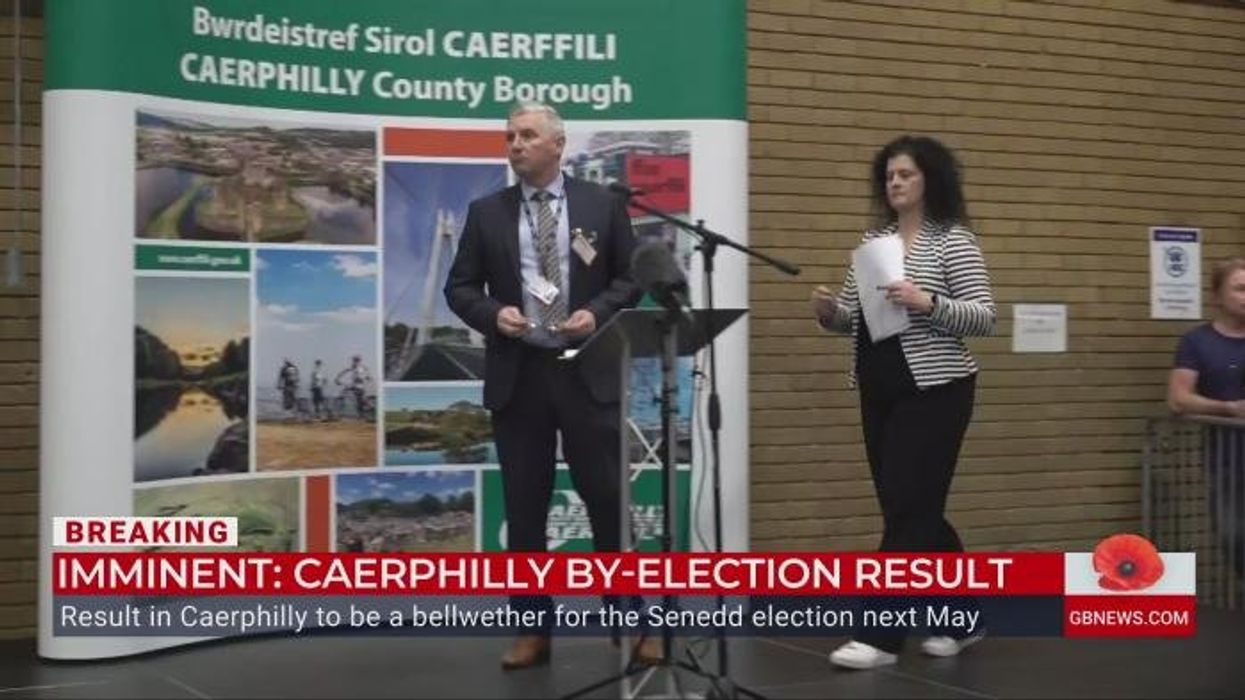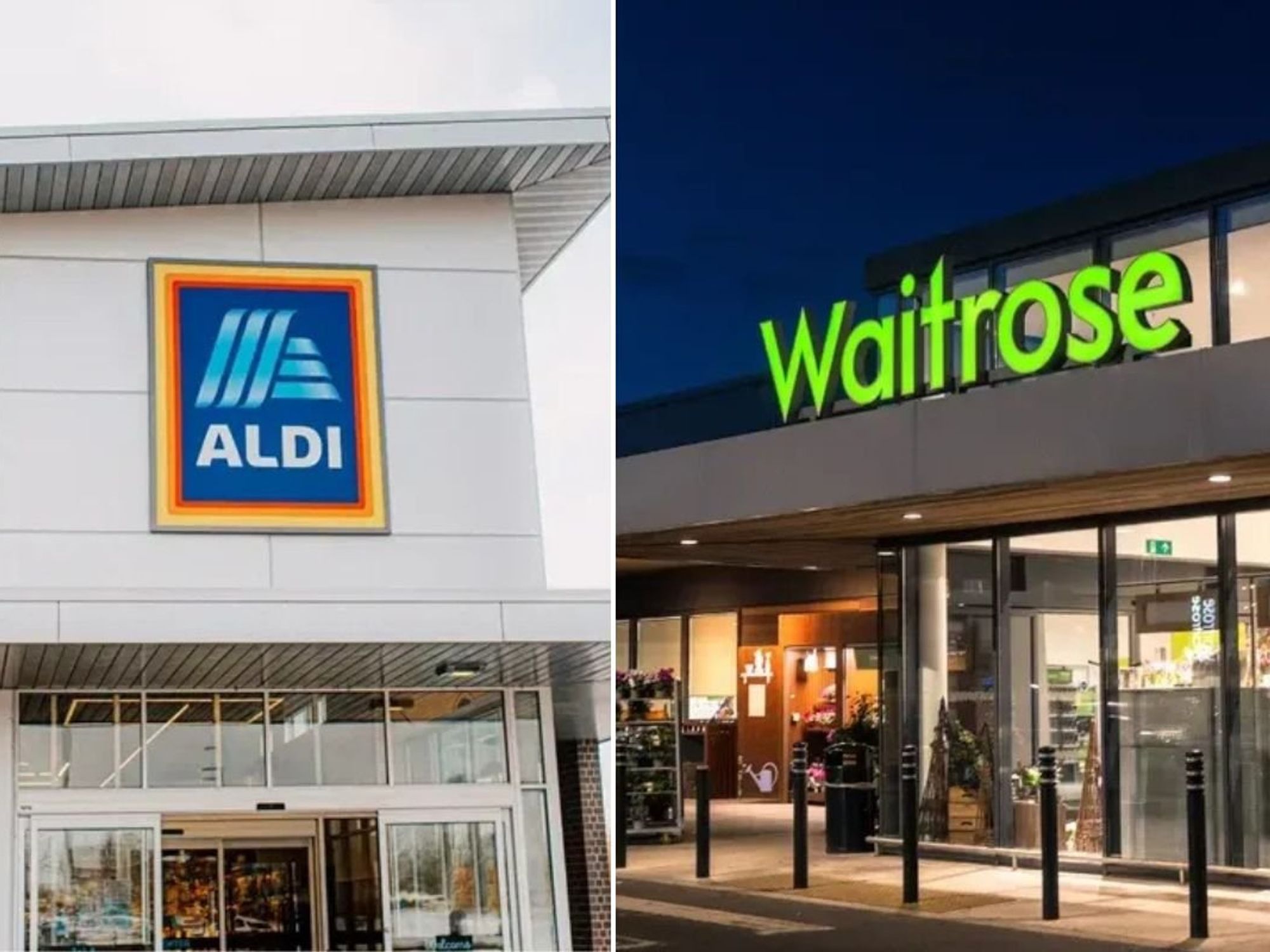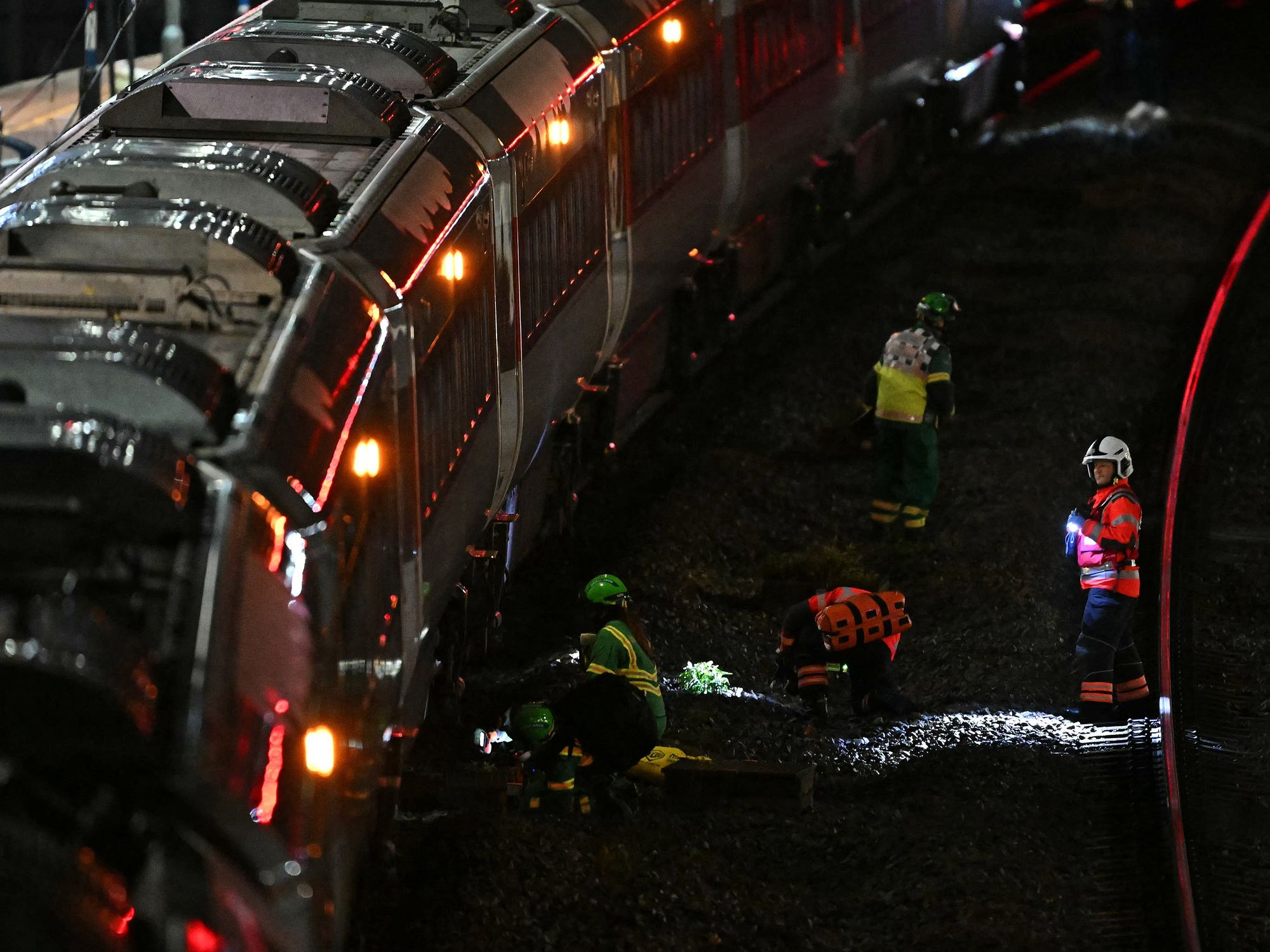Nigel Farage facing biggest electoral fear as Reform's path to power narrows

GB News’s Jack Walters explores how the Caerphilly by-election exposed challenges for Reform UK
Don't Miss
Most Read
Trending on GB News
As votes piled up in the once-safe Labour seat of Caerphilly, it was clear the contest was a two-horse race between Plaid Cymru and Reform UK.
Lindsay Whittle and Llyr Powell were the beneficiaries of, as Eluned Morgan admits, “difficult headwinds nationally”.
Welsh Labour will no doubt look to point the blame at Sir Keir Starmer. From the winter fuel fiasco to small boat crisis, the Prime Minister has seen his support fragment to the left and right.
And this isn’t anything new. Most by-elections end up becoming somewhat of a referendum on the party in power. Corby in 2012, Eastleigh in 1994 and even Orpington in 1962 spring to mind.
However, the Welsh Parliament has always been somewhat different. Four out of the previous five by-elections have been held by the incumbent party, with one even seeing son succeed father.
Caerphilly delivered a stern answer to the first question. A town that had been firmly red since 1918 delivered a damning indictment on Labour.
And it wasn’t just about national issues, local ones mattered too. From Ysbyty Ystrad to the local library, voters wanted to send Labour, in both Westminster and Cardiff Bay, a message.
However, the second question asked in Caerphilly threatens to tear up the by-election playbook.

Nigel Farage failed to pull off Reform UK's second by-election victory yesterday
| PARiding high in the polls, Reform UK’s stable nationwide support put Caerphilly in its sights, albeit by the finest of margins.
“If it was anywhere else in the Valleys we could just weigh the votes,” a Reform source told GB News ahead of polling day.
And Reform UK certainly hoovered up support, with 12,113 putting Mr Powell just 3,848 votes behind Plaid Cymru.
But an anti-Reform coalition ended any hopes of a second by-election victory for Nigel Farage since the 2024 General Election.
LATEST DEVELOPMENTS

Plaid Cymru's Lindsay Whittle celebrates after being declared winner for the Caerphilly Senedd by-election
|PA
While Reform’s support is strong, dislike for Mr Farage permeates around the country with equal fervour.
And one statistic more than any other proves that. Turnout in yesterday’s by-election was 50 per cent, making it higher than the overall turnout across Wales in 2021.
Some of those will be new voters giving Reform UK a chance, others will be people desperate to stave off another momentum-building victory for Mr Farage.
People might think Labour, Plaid Cymru, the SNP and Liberal Democrats are obsessed with Reform, in many ways they are.
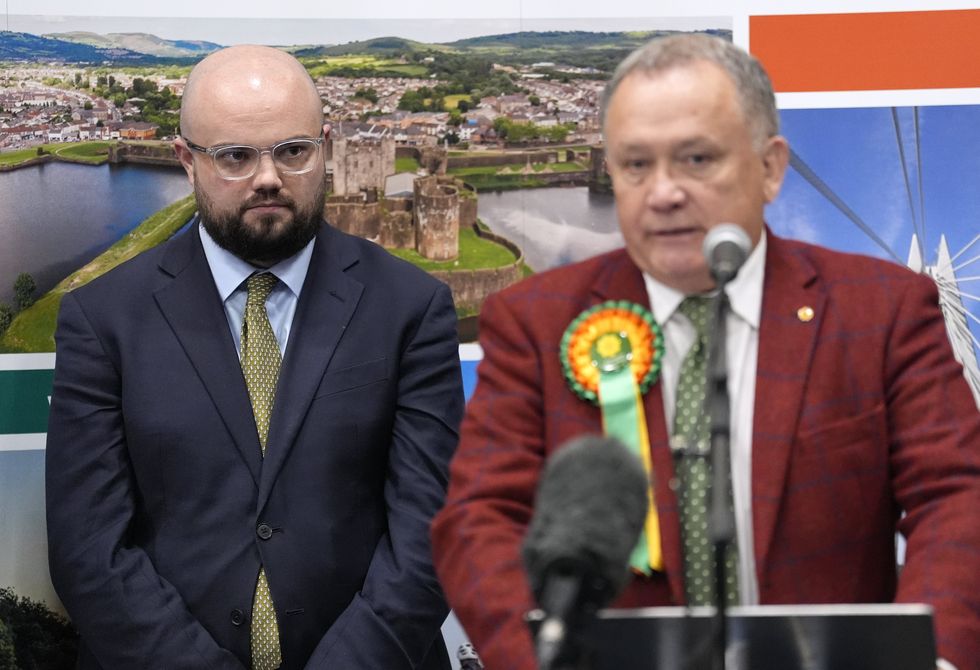
Reform UK's Llyr Powell (left) looks on as Plaid Cymru's Lindsay Whittle makes a speech after being declared winner for the Caerphilly Senedd by-election
|PA
But the reason isn’t just that Mr Farage is currently polling to be the next Prime Minister; it’s because an anti-Reform coalition could scupper everything.
Mr Whittle, who was buoyed by last week's Survation poll, ran his whole campaign on challenging both Labour and Reform UK.
And Labour insiders were fairly open about preferring Plaid Cymru to Reform UK. Labour candidates for the next Senedd Election even told GB News that they would prefer ex-supporters to vote Plaid to keep Reform out of power.
“Reform has upped the intensity massively," one downtrodden candidate said at the Labour Party Conference. "Welsh politics needed a shake-up, but now I fear it’s a fight between Plaid and Reform. If I had to choose, I hope Plaid wins.”

Nigel Farage visited Caerphilly several times during the by-election campaign
|PA
JL Partners co-founder James Johnson also pointed out that tactical voting has played a huge role previously.
Speaking to GB News ahead of polls opening, Mr Johnson said: "If you look at 1997, actually Labour and the Lib Dems had a very light-touched pact there. Although there wasn't anything formal, Labour candidates were soft-pedalling in seats that the Lib Dems were competitive and vice-versa."
Mr Johnson also argued that while it made sense to vote for Plaid Cymru in Caerphilly, Labour remains a key anti-Reform choice as the best-polling left-wing party in Britain.
Mr Powell voiced his frustrations about how much time and effort his rivals spent firing broadside shots at Reform UK.

Sir Keir Starmer and Eluned Morgan have a tough night in South Wales
|PA
"There's a lot of things that went on in this campaign that was very dark," Mr Powell told The People's Channel this morning.
However, Mr Farage should be more than aware that Britain’s electoral system hasn’t been awfully kind to him.
When Ukip received four million votes and won just one seat in 2015, Mr Farage himself was the victim of an organised campaign against him in Thanet South.
And what we saw in Caerphilly was no different. Supporters of minor parties, irrespective of their position on the Union, broke emphatically for Plaid.
But don’t think this is only something that can happen in Caerphilly. Progressive parties already know which one of them is best-placed to take on Reform in large swathes of the country.
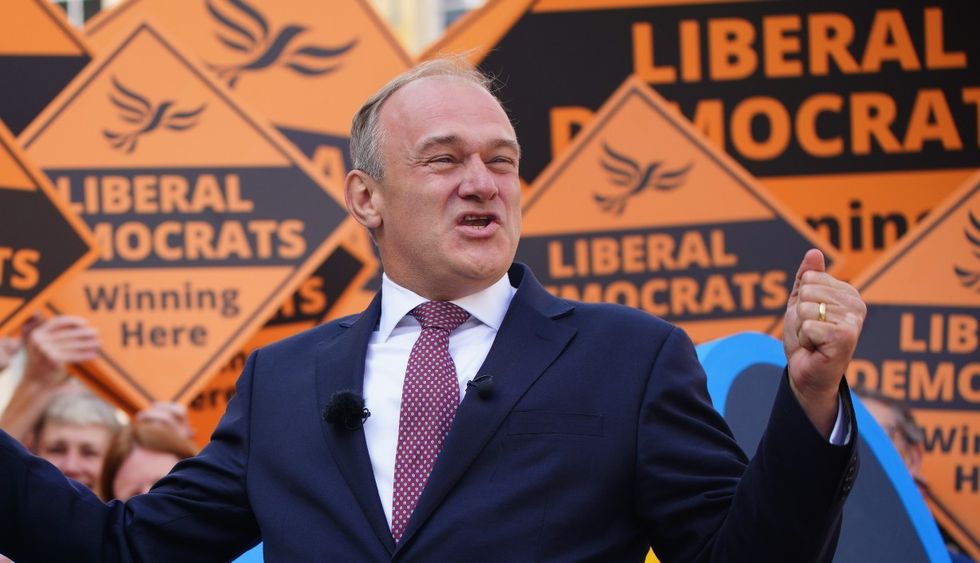
Sir Ed Davey could take on Reform UK in parts of the south of England
| PAThe Liberal Democrats probably have the best chance across much of southern England, stretching from Cornwall to the Chilterns.
Meanwhile, the Greens can no doubt mobilise support throughout our liberal-minded cities.
And don’t write off Labour just yet. Sir Keir’s languishing in the polls, but polls consistently show the Prime Minister performs better than Mr Farage in a head-to-head run-off.
Reform UK has two options. Mr Farage can sit on his hands and hope that frustrations with the Tories and Labour help reduce animosity towards him.
However, perhaps he would be better placed to look to bring more voters into Reform UK's grasp. Setting out a strong economic plan, ramping up efficiency at local councils and coming up with a plan to keep the NHS free at the point of delivery might be a good place to start.


